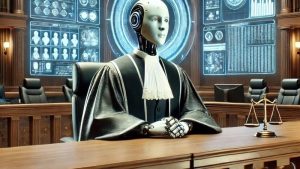-
Support in countering scientific and legal misconduct
We provide assistance in the handling of fraud and misconduct involving the areas of science, law, and their intersection:
scientific research misconduct claims, institutional and agency investigations, qui tam cases, and due process violations (primarily those involving presentation of evidence) from the perspective of fraud investigation, databasing, and publication.
WHAT WE DO...
Question
We can ask questions on your behalf in “real-time”, crisis situations.
Optimize
We can help optimize presentation and preservation of your evidence for filings and publication.Support
We support investigation and litigation (depending on case specifics).
Assist
We have had several successful experiences with vocational assistance for those who have suffered career harms as a result of speaking up (whistleblowers/tampered witnesses).Consult
We have also been of assistance in cases involving failed or absent government oversight, as well as having written and consulted on government agency improvement.
Advocate
We advocate for legislation that we believe will positively impact oversight of government programs and agencies, reduce fraud, waste, and abuse in research grant funding, and enhance the productivity and number of meritorious scientists.
-
Evidentiary Audit and The Vetting Project
In May 2022, we rolled out a project that we believe addresses a great need among the many people we have dealt with in prior years, including not only whistleblowers, but also litigants in the U.S., U.K. and beyond.
We call it The Vetting Project. It is based on our core work in evidentiary audit.
Many aggrieved whistleblowers, litigants, and others who have been involved in various forms of adjudication, feel cheated because the process ignored, or otherwise mishandled, the evidence they presented. In addition, judgments were frequently made upon insufficient evidence or against the evidence.
Upon suffering what they believe be serious injustice, the aggrieved often try to get redress by complaining online. However, claims by aggrieved persons are themselves sometimes unsupported by evidence, or if linked to evidence, it is too much material to expect most casual readers to examine.
Therefore, there is a need to have some third party attempt to certify the credibility of the claims of aggrieved parties. There is essentially no independent audit of the U.S. legal system, and legal misconduct claims to that system are almost entirely unsuccessful.
To try to remedy this situation, we work with aggrieved parties to assemble and review the evidence in their cases. We will then attempt to produce a report summarizing findings about various evidentiary points. Finally, we will, if appropriate, issue a brief statement and/or rating as to what we believe about the merits of points within the case and whether we believe further review or other action would be warranted.
Please click here for more information.
-
News
Dr. Bauchwitz appeared on the Slam The Gavel show to discuss why and how his consultancy, Amerandus Research, is partnering with other groups to help improve the U.S. legal system, with particular focus on individual litigants such as whistleblowers and those in family courts.
Podcast:
YouTube:
https://youtu.be/NRhp8D9TRx4?feature=shared
A Word version of the document referenced in the show, with excerpts and relevant links, is available here.
-

Judicial AI project
ENSURING DATA INTEGRITY IN AI-DRIVEN JUDICIAL REFORM
Subject: Advocating for Comprehensive and Transparent Court Records to Support AI Judicial Reform
AI has the potential to revolutionize legal transparency and accountability.
However, from the experiences of our clients, we believe that a critical challenge that threatens the integrity of this effort is the widespread falsification and omission of documents in the court record.
The Issue: Inaccurate and Manipulated Court Records
Court records, as they currently exist, do not always provide a reliable foundation for AI-assisted judicial oversight.
Many judges and legal professionals manipulate transcripts and case documentation to fit predetermined outcomes, often at the expense of justice.
The principle of “garbage in, garbage out” applies here—if AI is trained on flawed, incomplete, or falsified data, it risks perpetuating rather than correcting systemic injustices.
The Solution: Mandatory Comprehensive Court Recording
To ensure the highest data integrity, we propose the following measures:
1. Mandatory Digital Recording of All Court Proceedings
* Every statement made in court should be recorded digitally and made available to all parties, including (formerly) off-the-record discussions, sidebar conversations, and chambers conferences.
2. Transparency in Judicial Communications
* All emails, phone calls, and other communications between court officers, attorneys, and judges should be preserved, logged, and made accessible for auditing by professionals outside of the legal system. These records should be safeguarded against tampering and produced upon request.
3. Audit Mechanisms for Court Data Integrity
* Independent oversight should be established to verify the authenticity of court transcripts and recordings, ensuring the originals remain unaltered, and that personally identifiable information is effectively redacted for use in audit and machine functions.
4. National Implementation for AI Readiness
Federal, state, and local courts should adopt these reforms to create a robust and reliable dataset for AI training and judicial assessment.
In addition to the preceding, other actions to improve the quality of court data made available to AI systems would be to require:
5. Explicit Weighting of all Evidence
Promoting the use of explicit numerical weighting standards for all evidence produced in a case will assist the effectiveness of technical oversight by AI mechanisms.
Listing weighted evidence, with citations to the record, should also help counter widespread concerns by litigants that evidence is being largely or completely ignored.
The Impact: A More Just and Reliable Legal System
By advocating for complete and verifiable court records, we believe that we citizens can lay the foundation for AI-driven legal improvements that are truly just and transparent. These reforms would help prevent the manipulation of evidence and decisions, ensuring that AI-powered verdicts rely on factual and unaltered information.
A petition based on the preceding proposals can be found on Change.org as targeted to a prominent technologist involved in the use of AI in the judicial proceedings: https://chng.it/pKbjM4YtWc
Oversight and Fraud Investigation Blog
Improving governmetal oversight and fraud investigation
More Info


